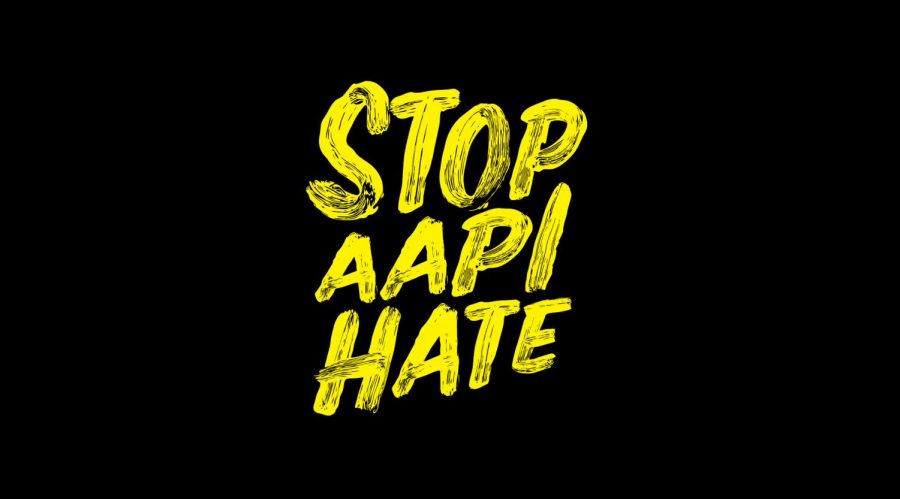Stop Asian And Pacific Islander Hate
As Hate Continues To Consume This Country, Asian Americans Become A Central Target
April 9, 2021
In recent years, it appears that there has been an increase in captured hate crimes and violence. People of minorities have lost their lives, all due to the prejudiced and arrogant views people have. Asians and Pacific Islanders are now targeted simply because of their race and the arrogant believe that the COVID-19 pandemic was “their fault”.
In this past year, there were 3,800 anti-Asian racist incidents, which were primarily against Asian women. According to the reporting forum ‘Stop AAPI Hate’, their research revealed that almost 3,800 incidents were reported [3,800 being a rough estimate] during the pandemic. That number is significantly higher compared to last year’s number with was about 2,600 hate incidents nationwide over five months.
According to data, which includes incidents that occurred between March 19 of last year and Feb. 28 of this year, it shows that roughly 503 incidents took place in 2021 alone. Verbal harassment and shunning were the most common types of discrimination, making up 68.1 percent and 20.5 percent of the reports respectively. The third most common category, physical assault, made up 11.1 percent of the total incidents. More than a third of incidents occurred at businesses, the primary site of discrimination, while a quarter took place in public streets.
According to the data, Asian women report hate incidents 2.3 times more than men. A further examination of the submitted reports showed that in many cases, the verbal harassment that women received reflected the very intersection of racism and sexism.
One Chinese American woman reported that a “man on the subway slapped my hands, threatened to throw his lighter at me, then called me a ‘c—- b—-.’ He then said to ‘get the f— out of NYC.’”
Another woman, who’s Filipino American, reported that while in a Washington, D.C., metro station with her boyfriend, a man shouted “Chinese b—-” at her, coughed at the couple and physically threatened them.
Jeung emphasized that women have always dealt with harassment from men and public safety issues more broadly. But the pandemic, he said, has provided another “excuse” for people to target Asian women.
“We’ve noticed that from the very beginning, it’s been a real consistent pattern,” Jeung said. “Bullies attack who they think are vulnerable, and we see this in our elderly and youth populations.”
The wave of violence directed at Asian American seniors at the beginning of the year, particularly the graphic attacks that have been captured on video, have likely prompted more attention from both the community and mainstream media, Jeung said. And has led to a more vocal response that is likely led to more reporting.
While these attacks on elders have catalyzed calls for action, Jeung made a distinction between this particular violence, most of which has not been found to be explicitly racially motivated, and the racism those in the community have been facing due to the problematic link between the virus and Asian Americans.
“I think there are separate trends, the violence that we’re seeing now and the racism we saw last year, but they are related,” Jeung said. “We’re really careful to note that this violence against Asian Americans in high-crime neighborhoods has always been high. And so, the combination of both the racism from last year and crimes against Asian elderly are now significant enough to get national attention.”
Karthick Ramakrishnan, founder and director of demographic data and policy research nonprofit AAPI Data, previously also warned against defaulting to a “simplistic understanding of what’s going on,” adding that the violence cannot be neatly summed up by solely the heightened anti-Asian sentiment witnessed throughout the pandemic. He said a confluence of factors, including the effects of poverty and financial struggle exacerbated by the pandemic, as well as opportunity, could have played into it.
“There’s a complex variety of factors, but the fundamental reality is that there’s an increase in the number of Asian Americans who feel unsafe,” he said.
Such issues have been elevated to the executive branch as President Joe Biden has addressed the issue of anti-Asian attacks. In addition to referencing the violence in his first national prime-time address Thursday night, he also signed a memorandum earlier this year that in part issued guidance on how the Justice Department should respond to the heightened number of anti-Asian bias incidents.
In recent news, on March 30th, a 65-year-old Asian American woman was physically and verbally attacked by an unidentified man in Manhattan, which police are investigating as a hate crime.
Surveillance footage from an apartment building caught the assault, and what we see are security guards failing to intervene and then closing the door on the woman. This shows the hate crimes targeted against Asian Americans is just increasingly drastically and getting worse and sickening by the day. The graphic video shows a man approaching the woman, kicking her aggressively to the sidewalk, stomping on her head and upper body three times and slowly walking away.
The video does not capture audio, but police said the suspect “made anti-Asian statements” as he kicked the woman. The woman suffered “a fractured pelvis and contusion to the head”.
On a daily briefing on Tuesday, the Mayor of New York City – Bill de Blasio – called the video “absolutely disgusting and outrageous” and urged New Yorkers to take a more active and prominent role in combating anti-Asian hate.
“This is something where we all have to be a part of the solution,” Blasio says. “We can’t just stand back and watch a heinous act happening.”
There will always be hate in this world. As will be prejudice, arrogance, and ignorance. Before our own eyes, we have seen acts of hatred be committed against people who are simply trying to live their lives. Society needs to acknowledge and respect one another as equals, and not as enemies. We are all human cut from the same cloth, no matter place of origin.
If you would like to contribute to stopping this hate, click here to make a donation at StopAAPIHate.org.



